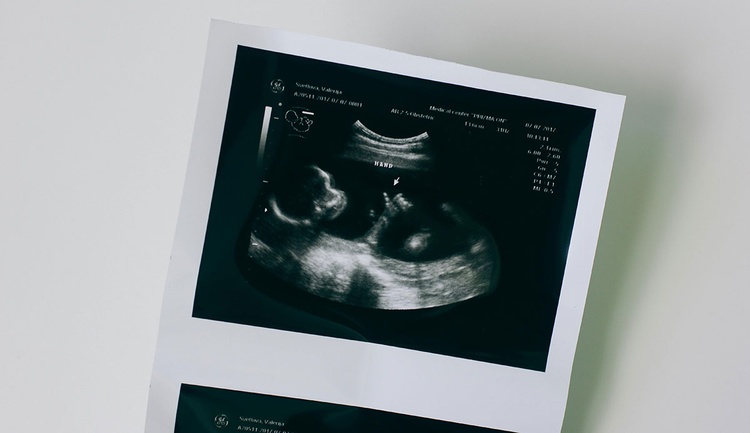Doug Groothuis, a philosopher, author, and professor, shared on his Facebook these thoughts about recent comments made by N. T. Wright about abortion:
Wright as Wrong on Abortion
Thomas Sowell was right: Expertise is not transferable. Don’t ask physicists about theology. Don't ask psychologists about history. Don't ask (at least one) New Testament scholars about abortion; that is, don’t ask N. T. Wright, who is dead wrong on the ethics of abortion as his recent podcast revealed. He thinks potential fetal deformity, as well as rape and incest, are valid reasons for abortion.
He is wrong and guilty before God for this error.
1. All humans, born and unborn, are made in God's image
2. Because of (1), they have the objective negative right not to be murdered. This is human dignity.
3. Abortion murders an unborn child made in God's image who has the objective right to live (2).
4. Therefore, abortion is morally wrong.
How the child was conceived or what deformities the child may have are morally irrelevant, since the dignity of human life trumps these concerns.
In a sense, there are no exceptions, because no procedure should be one the purpose of which is to kill an unborn child. In exceedingly rare cases, the child may have to die in a procedure to save the life of the mother. However, a true doctor always tries to save the lives of all his patients, mother and baby.
I write more about this in my forthcoming book, Taking Back the Truth, in the chapter, “The Truth about the Value of Human Life.”
John Stonestreet and Shane Morris share more in this commentary on Breakpoint:
Recently, the eminent British theologian and former Bishop of Durham N.T. Wright, who is famous for his defense of the doctrine of Resurrection, showed a shocking lack of familiarity with the basic moral case against abortion. Answering a question on his “Ask N.T. Wright Anything” podcast, Wright asserted that abortion can sometimes be the best choice:
[T]here are many, many cases where it is about the mother’s health versus the health of the child. … And particularly, as you cited, in cases of rape, in cases of incest, there may be a very, very strong argument for saying, ‘this ought never to have happened.’ And with sorrow—because we do not want to do this in principle—but with sorrow and a bit of shame, the best thing to do is as soon as possible to … terminate this pregnancy.
Wright went on to emphasize that killing a later-term baby is “repulsive,” and rivals the evil of post-birth infanticide, which he called “pagan,” and said early Christians were correct to oppose.
But what is a “later-term baby”? Wright said he doesn’t consider himself qualified to make that judgment, partly because “it’s very hard for a man to talk about this.” Also, he considers men who are dogmatic about abortion to be “bullying” women. He then said that “I am not medically qualified to say what point I would draw a line … [when] this is a viable human being that should, then, be cherished.”
So, according to Wright, abortion is sometimes the best course of action, especially in cases of rape, incest, and “severe deformity.” In these cases, it should be done with “sorrow” and “shame” but “as soon as possible” to avoid committing the morally “repulsive” act of late-term abortion, which is comparable to infanticide. When and where that moral line exists is not for men (as opposed to women) without medical degrees to say, even though he immediately added that viability is the moral line when a child should be “cherished.”
But why should abortion be performed with “sorrow” and “shame” unless it’s wrong? And if it is wrong, how would killing an innocent human be compassionate for someone suffering deformity? How does another evil undo the evil of rape or incest? What about the “many, many” other cases he alluded to where it is “about the mother’s health” (he explicitly included “mental health”) “versus the health of the child”? Who makes that call? What kind of abortion couldn’t be justified by appealing to mental health?
For that matter, why should a human with “severe deformity” only be killed before birth but not afterwards? And if Wright doesn’t have the credentials or chromosomes to say when a child should be cherished, how does he know it has anything to do with viability?
Every one of Wright’s arguments are familiar and his inconsistency obvious. In fact, that’s the point of these re-hashed arguments for abortion. The scattershot approach confuses the issue rather than illuminates it, and they all start with the premise that the preborn aren’t valuable human beings. That Wright has absorbed them and is repeating them shows he is either unaware or intentionally ignoring the actual case for life. It also shows that even if pro-lifers are tired of making basic pro-life arguments, we must continue to make them, even to eminent theologians.
In fact, the concise formulation of the pro-life argument by Scott Klusendorf, author of The Case for Life, exposes every one of Wright’s claims:
Premise 1: It is always wrong to intentionally kill an innocent human being.
Premise 2: Abortion kills an innocent human being.
Conclusion: Abortion is always wrong.
Anyone who thinks abortion is “the best thing to do” in some circumstances must either disprove one or both of these premises or show the conclusion is somehow invalid. Wright waffles on this task.
In another problematic answer, Wright seemed to question whether a belief in Jesus’ bodily resurrection is essential for Christians, including for fellow theologians who know better what is at stake. Such people can love Jesus, Wright said. They’re just “very, very muddled.” This very muddled statement, especially when applied to studied Biblical scholar Marcus Borg, contradicts Paul’s assertion about the physical resurrection and the faith. It’s especially disheartening coming from Tom Wright, whose book defending the Resurrection, is incredible.
Wright’s long list of books and teachings on Scripture and Jesus have been of enormous benefit to the Church and make him one of the preeminent scholars of our lifetime. All truth is God’s truth, including the truth he articulates in his work. But so is the truth about the preborn and the evil of abortion. Even basic truths must be repeated and defended, and at times to fellow Christians who ought to know better than anyone else.
While teaching a course at Veritas Evangelical Seminary, I talked about abortion when rape or incest is involved. As I say in the video, this is an extremely important argument to address, because it takes otherwise prolife people and makes them prochoice. If we follow this reasoning to its logical conclusion, and those are seen as legitimate exceptions, then we can work backwards to make exceptions for all other kinds of cases, and in what sense are we still prolife?
EPM has also addressed the issue of abortion in the case of disability:
No Matter How Painful the Situation, Ending a Disabled Child’s Life Through Abortion Is Never Right
A Paralympic Swimmer’s Story and the Value of Every Child’s Life, No Matter the Challenges They Face
Disabled Children and Our Cultural Blindspot
And here is my response to the question, “What About a Woman Whose Life Is Threatened by Pregnancy or Childbirth?”






